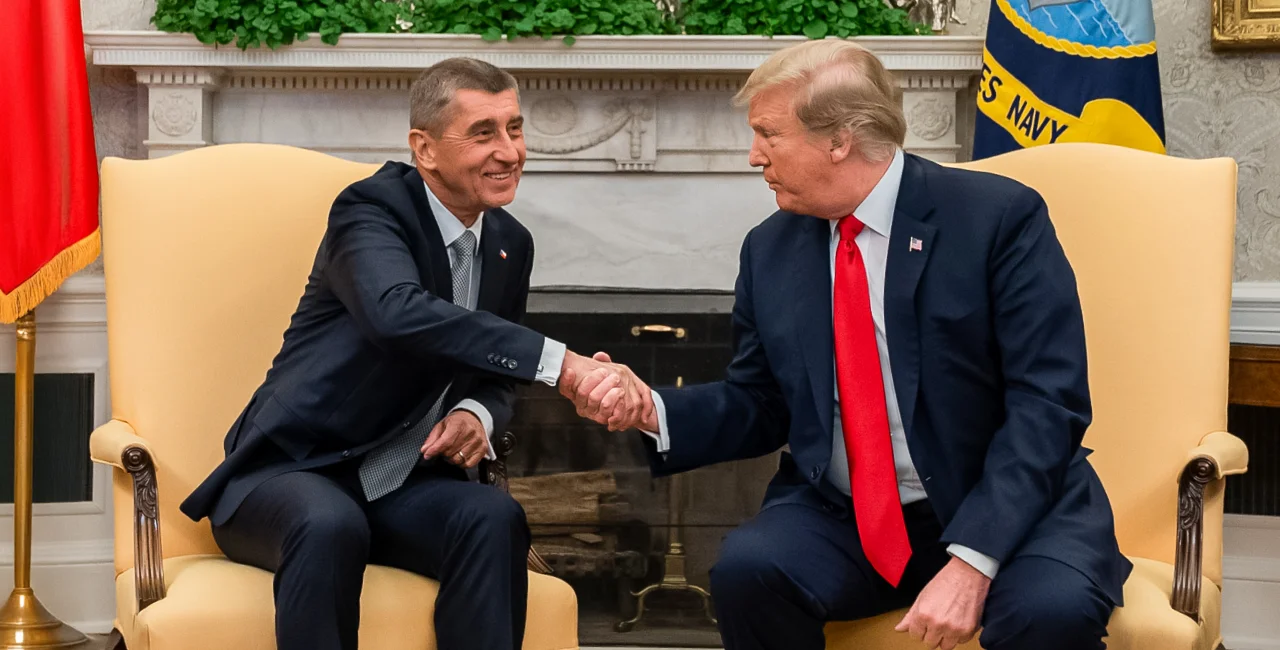The Patriots of Europe group in the European Parliament, a political alliance of far-right and conservative parties, is poised to gain strength with the potential re-election of Donald Trump as President of the United States, according to Karel Havlíček, deputy chairman of the Czech political party ANO.
This group is expected to see a boost in influence within the European Union (EU) due to shared political priorities with the U.S. Republicans, such as migration, climate, energy policy, and security, Havlíček told the Czech News Agency (ČTK).
What is the Patriots of Europe group?
The Patriots of Europe is an influential political bloc in the European Parliament, consisting of far-right and populist parties from across Europe. It includes parties like France's National Rally, Hungary's Fidesz led by Prime Minister Viktor Orban, Austria's Freedom Party, and Italy’s League, among others. In the Czech Republic, the ANO movement, led by billionaire Andrej Babiš, is a key member, alongside the Oath and Motorists parties.
The long wait is over. President @realDonaldTrump is back! 😎 pic.twitter.com/4ApmHeXhIO
— Orbán Viktor (@PM_ViktorOrban) November 6, 2024
Following the June 2024 European Parliament elections, the group became the third-largest political faction, surpassing the European Conservatives and Reformists (ECR). The Patriots for Europe now trail only the European People's Party (EPP) and the Socialists and Democrats (S&D) in terms of size and influence.
How will Trump's re-election strengthen the group?
Havlíček argues that Trump’s return to the White House would fortify the Patriots of Europe, particularly as it would align the group more closely with the U.S. Republican Party.
This would reinforce the bloc's position within the EU, as their shared ideological views on issues such as migration control, climate change skepticism, and security policy would likely create closer ties with the U.S.
Trump’s re-election could also bolster the Visegrad Group (Czechia, Hungary, Poland, and Slovakia), whose member countries already support many of Trump’s policies. These countries, including Czechia, may benefit from a stronger political relationship with the U.S., especially in areas of trade, defense, and migration control.
What are the concerns in Czechia?
While the political alignment with the U.S. could benefit the Patriots for Europe, there are concerns about the potential consequences of Trump’s policies. In particular, Havlicek and other ANO members have warned of the implications of a post-war influx of migrants to the Czech Republic, particularly if the war in Ukraine ends.
The Czech counterintelligence services have estimated that as many as 100,000 war veterans could potentially arrive, which could present significant challenges in terms of security, health, and social integration.
The Czech opposition party fears that war veterans from Ukraine—many of whom are trained in combat and could have psychological or health issues—may seek refuge in Europe, including in Czechia.
Havlicek emphasized the need for thorough preparation by European governments and security forces to handle this situation without allowing a large-scale influx that could create instability. "The EU must be prepared for another wave of migration, for example, if the war ends,"Havlíček told ČTK.
Looking ahead
The potential for Donald Trump’s election to further empower the Patriots of Europe group marks a significant shift in European politics, particularly in countries like Czechia. With the group’s rising influence, EU policy could see more alignment with right-wing agendas, creating new political dynamics within both the European Union and its relationship with the U.S.
The rise of the Patriots of Europe group raises concerns among critics about the EU’s democratic values, as their push for national sovereignty and alliances with illiberal regimes threatens cohesion. For Czechia, the growing influence of such groups presents a challenge in balancing domestic sovereignty with the need for unity, especially amidst migration and security concerns.













 Reading time: 3 minutes
Reading time: 3 minutes 

























